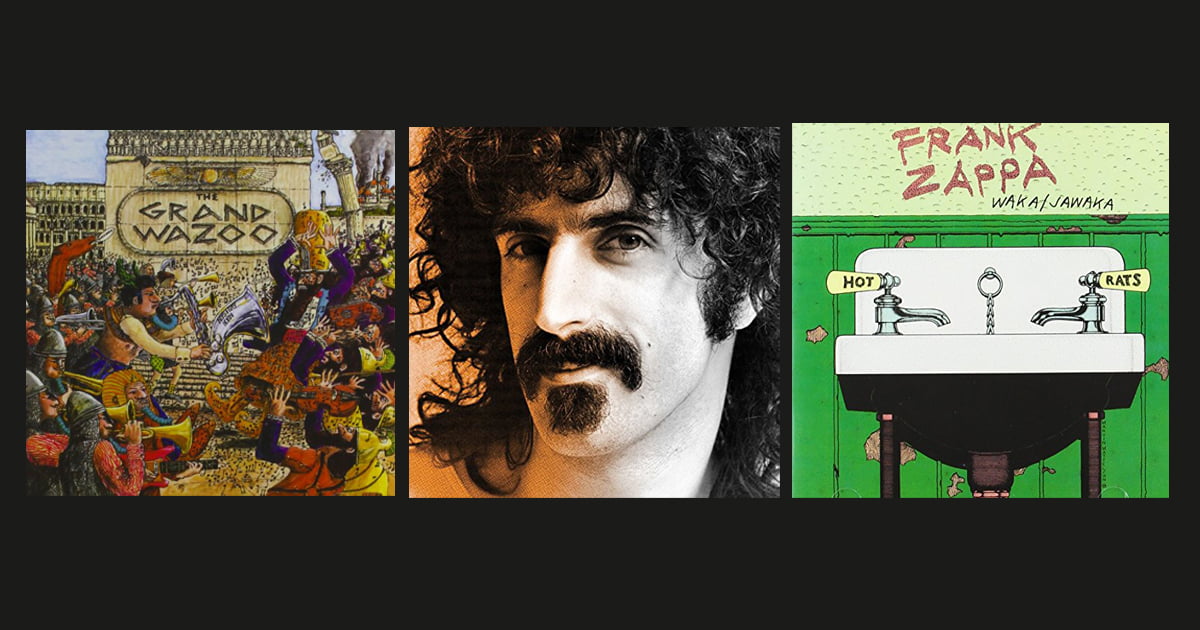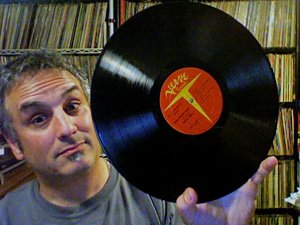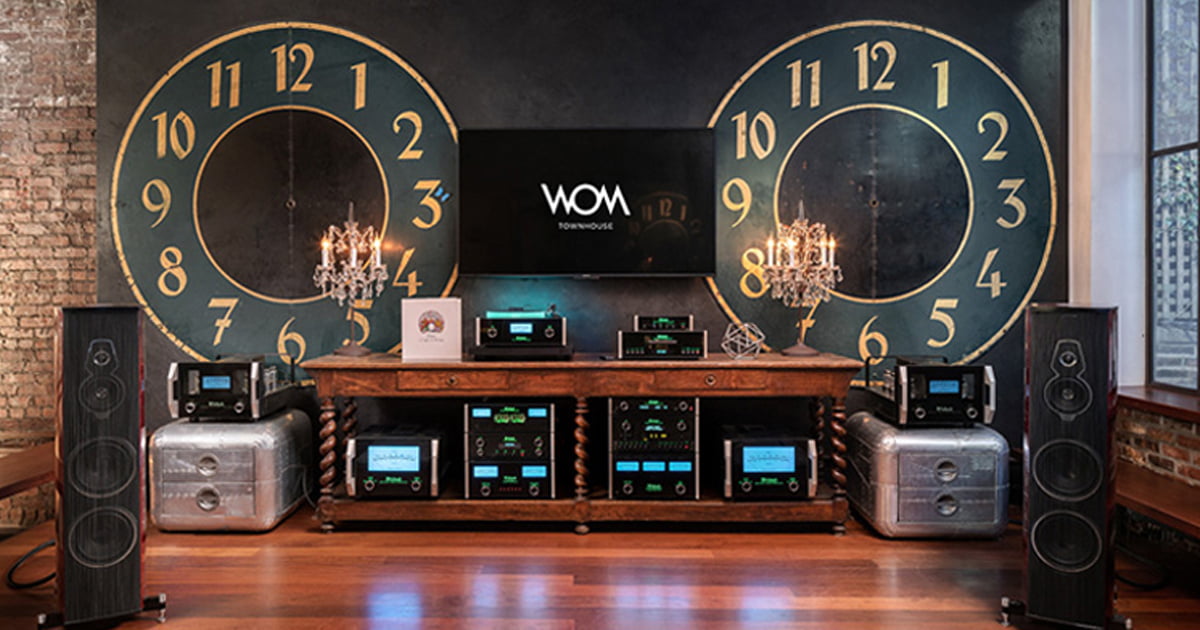It’s the time of year for saving money!
One of the most interesting periods of Frank Zappa’s career is frequently his most overlooked. This is the time right after his tragic, near life threatening accident (where a crazed fan pushed him off the stage) but before he assembled the next great incarnation of his Mothers of Invention (ie. the so called “Roxy” era band).
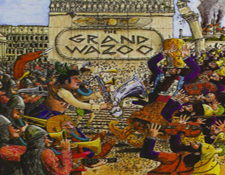 Betwixt and between — roughly the year of 1972 — Zappa recorded two albums and assembled two incarnations of a new type of big band which he toured very briefly. Pretty amazing for a man who (according to the wiki) “suffered serious fractures, head trauma and injuries to his back, leg, and neck, as well as a crushed larynx.”
Betwixt and between — roughly the year of 1972 — Zappa recorded two albums and assembled two incarnations of a new type of big band which he toured very briefly. Pretty amazing for a man who (according to the wiki) “suffered serious fractures, head trauma and injuries to his back, leg, and neck, as well as a crushed larynx.”
So brief was this tour that in all my years of talking with Zappa fans — I started listening to him in ernest when I was in the 7th grade, so its been a long time now — I have only met one person who actually saw one of these legendarily obscure concerts (Hi Bob!).
Now, via their association with Universal Music, the Zappa Family Trust has released some fine recordings from this era which at present are only available on CD. But, you know what? They sound pretty groovy and until the LP versions eventually come out (they are working on an LP reissue series which I will be reviewing here over the course of this year) the CDs might be a good way for fans new and old to get familiar with some music that they might have missed in the past.
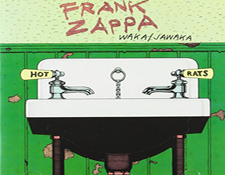 First up are the two studio releases Zappa put out in 1972: The Grand Wazoo and Wakajawaka. Both albums are high on instrumental prowess and low on comic relief, so be forewarned all you fans of the more “jokey” Zappa material. Fear not, there is plenty of weird wonderment in these recordings, but in general, these are albums with lovely long form jams that grow and take the listeners on a different type of listening journey.
First up are the two studio releases Zappa put out in 1972: The Grand Wazoo and Wakajawaka. Both albums are high on instrumental prowess and low on comic relief, so be forewarned all you fans of the more “jokey” Zappa material. Fear not, there is plenty of weird wonderment in these recordings, but in general, these are albums with lovely long form jams that grow and take the listeners on a different type of listening journey.
Central to this new trip was a smokin’ little horn section: Saxes (Baritones! Tenors!) Bass Flute! Bass Clarinet! Trumpets and Flugelhorns! Trombones. Baritone Horns!
Its a freakin’ orchestra, man!
And man, could those cats jam! On Wakajawaka, “Big Swifty” took up a whole album side back in the day. The title tracks to both albums took up almost as much real estate and those properties have only gone up in value. That lush, fat horn section soared over compelling counterpoint, taking fascinating twists and turns which make these records as important and valuable a listen as Zappa’s other jazz-rock landmark release, Hot Rats (from 1969).
Compared to the original pressings (which I own), these CDs sound quite good with nice clarity courtesy of careful remastering in 2012 by Doug Sax his team at The Mastering Lab. For those of us into the nitty gritty details, I was pleased to find specifics on the “food chain” used to remaster this album in the CD’s liner notes (ie. DSD signal path, Ampex ATR 102, Meitner-Mark II A/D converter, Sonoma Digital Workstation, etc.)
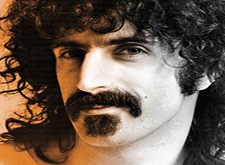 Comparing the CD to an original Bizarre Records LP pressing I own, the LP wins on the side of overall warmth and presence, but the CD does sound quite good as CDs go. Yes, there are some of the expected artifacts inherent to the CD format, so periodically you may notice a cymbal sounding a little swishier than the original LP. And there is that over all crisp edge which becomes more apparent as you turn up the volume on your stereo (especially in the mid ranges). But relative to other CDs I’ve heard over years, this one sounds pretty sweet all things considered.
Comparing the CD to an original Bizarre Records LP pressing I own, the LP wins on the side of overall warmth and presence, but the CD does sound quite good as CDs go. Yes, there are some of the expected artifacts inherent to the CD format, so periodically you may notice a cymbal sounding a little swishier than the original LP. And there is that over all crisp edge which becomes more apparent as you turn up the volume on your stereo (especially in the mid ranges). But relative to other CDs I’ve heard over years, this one sounds pretty sweet all things considered.
Onto the music… the title track of Wakajawaka is one of my favorite Zappa songs ever.
The wonderful poke at the emerging Southern Rock genre on “It Might Just Be A One Shot Deal” sounds quite fabulous, only getting momentarily harsh at the transition point at the weird vocal break down into the jam.
Actually, if I might take a little topical detour, working on this review prompted me to look up the lyrics to the song on the fab Zappa-fan made-and-maintained WikiJawaka (thank you, Interwebs) as it is one of those songs where its super hard to make out what Zappa is actually singing about. And, well, if the lyrics I found on the web are accurate, this seems to be something of a warning song — perhaps to other musicians — many of whom were finding themselves getting set up for drug busts at the time.
So thus the story, which reads like a sort of drunken fairy tale (including a Frog as a central evil character), has an important point to make: “… keep an eye on that frog” !
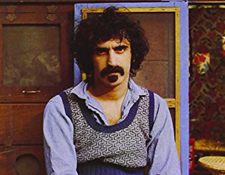 It’s very cool to clarify this after all these years, especially since Frank was staunchly anti-drug; but I’m sure he also didn’t like seeing other musicians he respected getting set up by the authorities of the times — he’d been set up early on in his career in other ways. Stuff was going down, kids…
It’s very cool to clarify this after all these years, especially since Frank was staunchly anti-drug; but I’m sure he also didn’t like seeing other musicians he respected getting set up by the authorities of the times — he’d been set up early on in his career in other ways. Stuff was going down, kids…
Anyhow, back to the music, this CD is very enjoyable. Its a respectable representation of the music and certainly — especially for the new Zappa collector — an affordable way to explore this album. I’m happy to have it now so I can play Wakajawka in the car or wherever I might want to take this music on the go; as Zappa records go, Wakajawaka makes for great driving music!
Not surprisingly, the sound on The Grand Wazoo CD fares similarly when compared to my original early 70s Bizarre Records LP pressing.
]]>The only real downside is that the CD reissue employs a slightly different song running order than the original album (which apparently Zappa himself authorized before he passed away, if what I’ve read on the web is accurate). Thus if you are used to the album opening with the moody weirdness of “For Calvin (And His Next Two Hitch Hikers)” you may be in for a surprise as that song has been flip flopped, allowing the title track to kick off the record in all its swingin’ big-band, jazzy-rocky-fusiony glory. It is not a bad thing, necessarily. But it is different and for those of us who grew up listening to Zappa’s original vision for the album, that difference is jarring. In addition to the original LP, I also have the 1986 Rykodisc CD of Grand Wazoo which has the original running order on it and comparing both versions I can’t really say one running order is better than the other. The new CD does sound fuller than the Ryko edition, however.
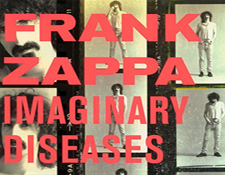 Live recordings of music from this period were virtually invisible to most fans until relatively recently. The Zappa Family Trust has been digging into the archives and releasing interesting concerts from the period. In 2007 they released a full concert from the only tour the Grand Wazoo 20-piece version of the band ever did on an album called Wazoo. Another archival release, called Imaginary Diseases, features the equally short-lived 10-piece “Petite Wazoo” band in concert. Both are quite wonderful and essential listening for the advanced Zappa fan.
Live recordings of music from this period were virtually invisible to most fans until relatively recently. The Zappa Family Trust has been digging into the archives and releasing interesting concerts from the period. In 2007 they released a full concert from the only tour the Grand Wazoo 20-piece version of the band ever did on an album called Wazoo. Another archival release, called Imaginary Diseases, features the equally short-lived 10-piece “Petite Wazoo” band in concert. Both are quite wonderful and essential listening for the advanced Zappa fan.
Which brings us to the electrifying conclusion of our review round up: discussing the newest Zappa vault release from this time period called Little Dots. This CD features selections performed by the Petite Wazoo band, taken from November and December 1972 concerts in Washington DC, Charlotte NC, Kansas City MO and Columbia SC.
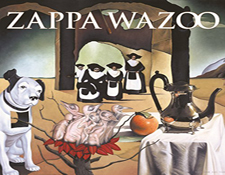 Here you get a very early bluesy version of “Cosmik Debris,” a song which would not see the light of day until 1974 on the Apostrophe album. The title track features a great “devious little boogie” type jam that is bookended by a “bunch of weird stuff on either side,” according to Zappa on the recording. The two long tracks from Columbia, SC — imaginatively titled “Columbia, S.C. (Pt. 1 and Pt. 2)” — are fascinating because they provide a unique glimpse into how Zappa could turn on a dime if needed. You see, in this instance, a couple of his musicians were busted just before the show was about to start (!). So, the drummer for opening act Tim Buckley — Maury Baker — sat in for an entirely improvised performance with Zappa’s band! I’d love to hear that whole show some day.
Here you get a very early bluesy version of “Cosmik Debris,” a song which would not see the light of day until 1974 on the Apostrophe album. The title track features a great “devious little boogie” type jam that is bookended by a “bunch of weird stuff on either side,” according to Zappa on the recording. The two long tracks from Columbia, SC — imaginatively titled “Columbia, S.C. (Pt. 1 and Pt. 2)” — are fascinating because they provide a unique glimpse into how Zappa could turn on a dime if needed. You see, in this instance, a couple of his musicians were busted just before the show was about to start (!). So, the drummer for opening act Tim Buckley — Maury Baker — sat in for an entirely improvised performance with Zappa’s band! I’d love to hear that whole show some day.
Anyhow, those are some of the joys you can look forward to on these fine new CDs from the Zappa archive. Its really so great that the vaults are open again and that more people will get a chance to discover the timeless wonders of Frank Zappa’s music.
‘The present day composer refuses to die.’
Edgar Varese
